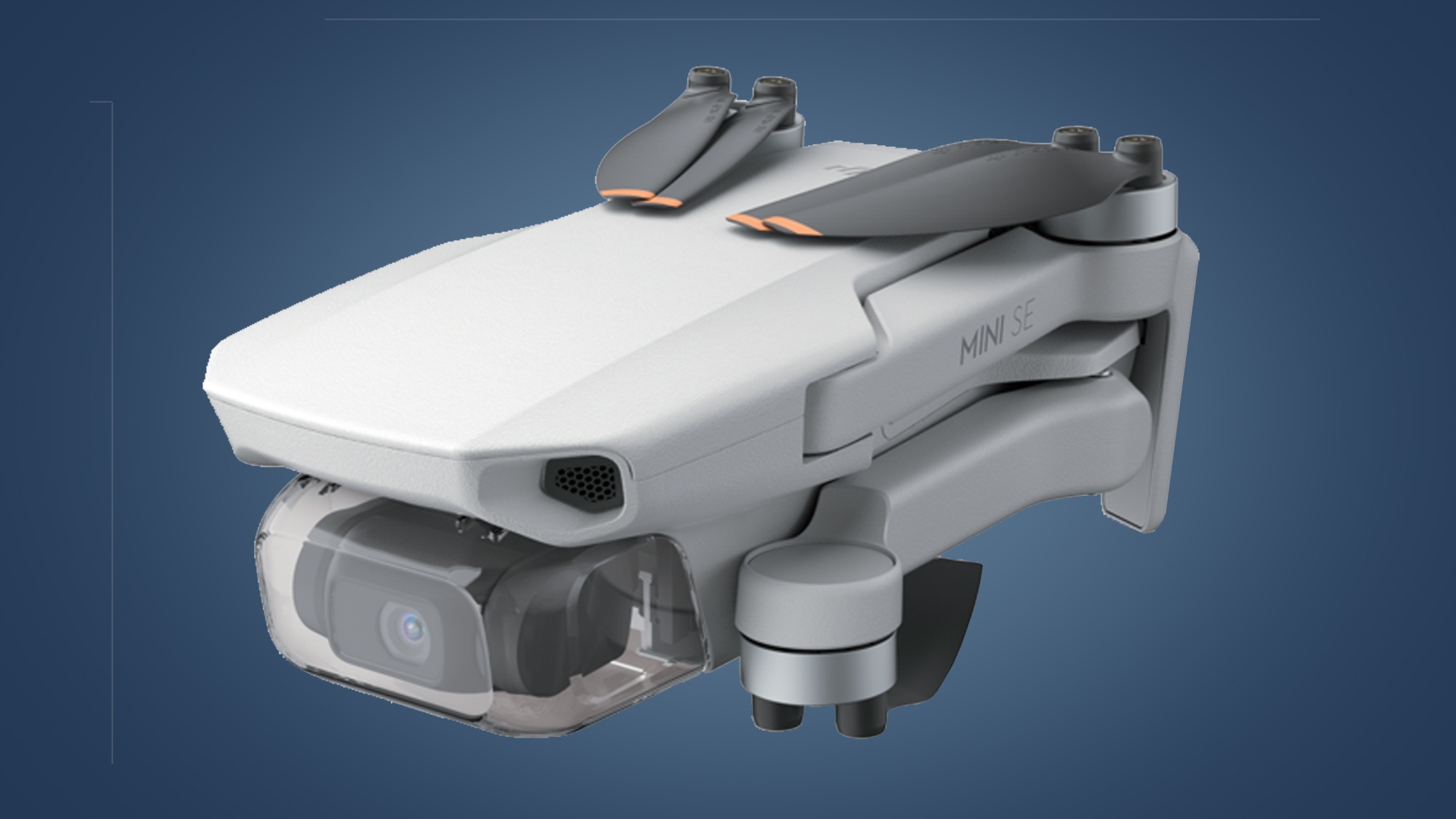The drawn-out release of the DJI Mini SE has finally resulted in the mini drone being officially released in the US, and it's shaping up to be an impressive budget option – but beginner fliers should still likely plump for the DJI Mini 2.
Despite saying back in July that "there are currently no plans to sell this product in the US or Europe (apart from Russia)", DJI has now said that the Mini SE is available in the US "through retail channels for $299".
To put that in context, DJI's current entry-level drone – the DJI Mini 2 – costs $449, and the DJI Mini SE is the drone king's cheapest ever drone. But the Mini SE is also based on the much older tech of the DJI Mavic Mini, which came out in October 2019, and this does bring some pretty big drawbacks.
- These are the best drones you can buy right now
- Or check out our guide to the world's best beginner drones
- Read our in-depth DJI Mini 2 review
The main disadvantages of the DJI Mini SE compared to its newer sibling are its lower resolution video (a maximum of 2.7K, compared to the Mini 2's 4K), the lack of a raw photo mode and, crucially, an absence of Ocusync 2.0 connectivity.
The latter means the Mini 2 has both a considerably improved range of 10km, compared to the Mini SE's 4km, but also a more stable connection that can often be more resistant to interference and generally gives it a more polished, confident flying experience.
There are other small differences between the two drones, such as their different controllers. The Mini SE's pad has a more compact folding design, while the Mini 2's is larger and a bit more polished. But this will largely come down to personal taste – the Mini SE controller's size is a potential bonus for hikers, while those with larger hands may prefer the pad its newer sibling.
More importantly for anyone who's looking for the first flying camera, the DJI Mini 2 has a much more powerful camera. Both drones have the same-size 1/2.3in sensor, but the Mini 2 has a superior bit-rate (100Mbps, compared to the SE's 40Mbps) along with much better resolution and frame-rate options.

Will there be a DJI Mini 3?
The DJI Mini SE is certainly worth considering if you're looking for an affordable beginner drone, though it's a shame that there don't appear to be any more 'Fly More' bundles with extra batteries for even better value.
Also, the DJI Mini 2's advantages in image quality – for both video and photos, with that raw mode – and connectivity, thanks to Ocusync 2.0, do make it the more polished and future-proofed choice.
Still, given we're now approaching a year since the DJI Mini 2 landed, should you hold out for a possible DJI Mini 3? So far, we haven't seen any credible rumors that a Mini 3 is imminent. DJI has previously followed an annual upgrade cycle for its beginner and mid-range drones – the Mini 2 landed in November 2020 (a year on from the Mavic Mini), while the DJI Air 2S arrived in April 2021, almost exactly a year on from the DJI Mavic Air 2.
But the arrival of the DJI Mini SE does cloud the picture a little, and this certainly isn't a year where we can make confident predictions about release cycles. So far, we've seen stronger rumors about the long-awaited DJI Mavic Pro 3, which is expected to replace the almost three-year-old DJI Mavic 2 Pro, but the latest rumors suggest that model has been delayed.
Our current advice for beginners, then, is that the DJI Mini 2 is the best drone you can buy and is unlikely, according to the latest rumors, to be succeeded imminently. But for sheer value, the DJI Mini SE is certainly an interesting new option that's worth considering if you don't mind its slightly dated video skills and flying experience.
- These are the best DJI drones you can buy
from TechRadar - All the latest technology news https://ift.tt/3lSWycf